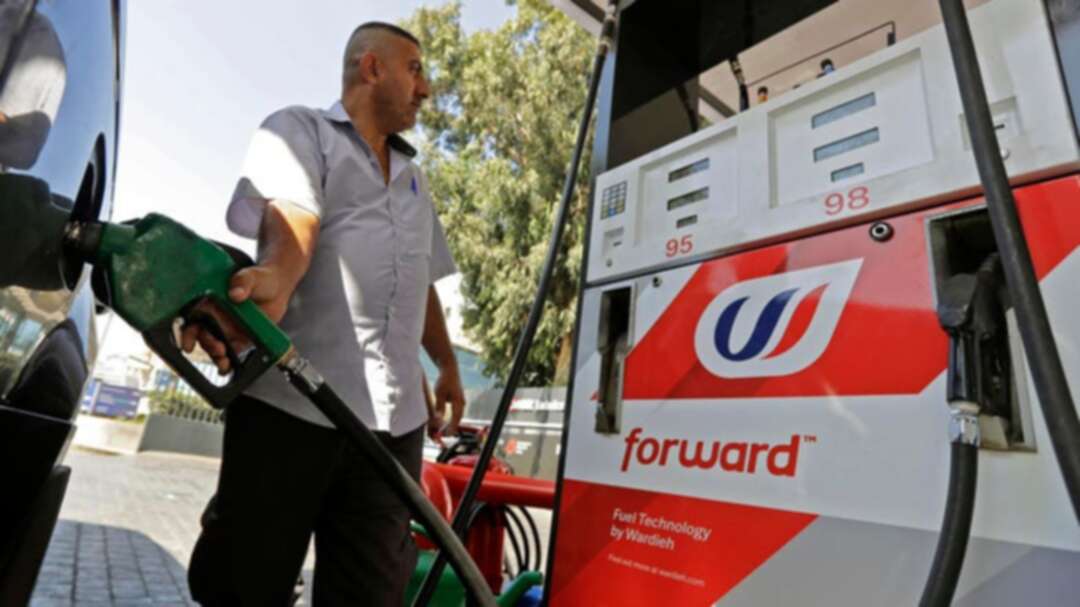-
Lebanon petrol stations suspend strike over dollar ‘shortage’

Owners of petrol stations in Lebanon on Friday suspended a strike called over an alleged shortage of dollar reserves, pending a meeting with the prime minister later in the day.
The Syndicate of Gas Station Owners on Thursday night announced an open-ended strike, saying banks were not supplying them with the dollars they need to pay importers and suppliers because of a shortage in reserves.
Motorists streamed into filling stations to replenish their vehicles after the strike announcement on Thursday, resulting in long queues.
“The syndicate decided to suspend the strike on Friday,” after a meeting was scheduled with Prime Minister Saad Hariri in the afternoon, said Sami Brax, the head of the syndicate.
“We will meet again on Saturday morning to determine our final position,” he added in a statement.
Lebanese media this week reported that banks and money exchange houses were rationing their dollar sales over a feared shortage in reserves.
The syndicate had said that petrol station owners were having to purchase dollars on the black market or from money exchange offices at higher rates.
Lebanese officials, including President Michel Aoun and Central Bank governor Riad Salameh, have tried to play down the risk of an economic collapse.
When asked about a feared shortage in dollar reserves, Aoun on Friday said “Lebanon is not in danger.”
“I will not let Lebanon collapse,” he told reporters.
Foreign Minister Gebran Bassil acknowledged “external pressure on the economy and the Lebanese pound,” but said that local parties were exaggerating the situation to undermine the government, the state-run National News Agency (NNA) reported on Friday.
“There are local actors who are conspiring against the country and its economy,” he said.
They are “fabricating” the situation “to incite citizens against the state,” he added.
Salameh on Monday denied that Lebanon was facing a dollar crisis.
“Dollars are available in Lebanon,” the central bank governor said in a news conference, calling reports of a shortage an “exaggeration.”
Economic growth in Lebanon has plummeted in the wake of repeated political deadlocks in recent years, compounded by the impact of eight years of war in neighboring Syria.
Lebanon’s public debt stands at around $86 billion -- higher than 150 percent of GDP -- according to the finance ministry.
Eighty percent of that figure is owed to Lebanon’s central bank and local banks.
Last month, ratings agency Fitch bumped the country down to “CCC” over what it called “intensifying pressure on Lebanon’s financing model.”
Tags
You May Also Like
Popular Posts
Caricature
BENEFIT Sponsors BuildHer...
- April 23, 2025
BENEFIT, the Kingdom’s innovator and leading company in Fintech and electronic financial transactions service, has sponsored the BuildHer CityHack 2025 Hackathon, a two-day event spearheaded by the College of Engineering and Technology at the Royal University for Women (RUW).
Aimed at secondary school students, the event brought together a distinguished group of academic professionals and technology experts to mentor and inspire young participants.
More than 100 high school students from across the Kingdom of Bahrain took part in the hackathon, which featured an intensive programme of training workshops and hands-on sessions. These activities were tailored to enhance participants’ critical thinking, collaborative problem-solving, and team-building capabilities, while also encouraging the development of practical and sustainable solutions to contemporary challenges using modern technological tools.
BENEFIT’s Chief Executive Mr. Abdulwahed AlJanahi, commented: “Our support for this educational hackathon reflects our long-term strategic vision to nurture the talents of emerging national youth and empower the next generation of accomplished female leaders in technology. By fostering creativity and innovation, we aim to contribute meaningfully to Bahrain’s comprehensive development goals and align with the aspirations outlined in the Kingdom’s Vision 2030—an ambition in which BENEFIT plays a central role.”
Professor Riyadh Yousif Hamzah, President of the Royal University for Women, commented: “This initiative reflects our commitment to advancing women in STEM fields. We're cultivating a generation of creative, solution-driven female leaders who will drive national development. Our partnership with BENEFIT exemplifies the powerful synergy between academia and private sector in supporting educational innovation.”
Hanan Abdulla Hasan, Senior Manager, PR & Communication at BENEFIT, said: “We are honoured to collaborate with RUW in supporting this remarkable technology-focused event. It highlights our commitment to social responsibility, and our ongoing efforts to enhance the digital and innovation capabilities of young Bahraini women and foster their ability to harness technological tools in the service of a smarter, more sustainable future.”
For his part, Dr. Humam ElAgha, Acting Dean of the College of Engineering and Technology at the University, said: “BuildHer CityHack 2025 embodies our hands-on approach to education. By tackling real-world problems through creative thinking and sustainable solutions, we're preparing women to thrive in the knowledge economy – a cornerstone of the University's vision.”
opinion
Report
ads
Newsletter
Subscribe to our mailing list to get the new updates!






















